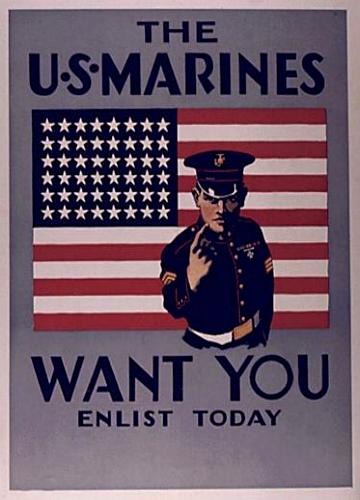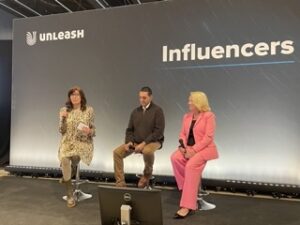Who's that Girl?
Recruiters- Use A Targeted Sales Pitch To Land Top Candidates
Originally posted: March 30, 2012 on TrishMcFarlane.com
What facets should a robust recruiting strategy take into account?
- the business needs
- the organizational culture
- finding the most qualified employees
These are the tenets that are widely accepted as some of the most important when determining your strategy. From there, recruiters attempt to find the candidates who are qualified for the open positions. The candidates come in to interview and give us their best sales pitch on why we should hire them. Then, the recruiter, hiring manager, and any other important players pitch why the company is so great.
This is the step where many organizations fall down. In our zeal to get the candidate on board, we throw out every possible reason the company is great in hope that something will resonate with our strongest candidate. It’s a bit like throwing a handful of darts at the dartboard. You may hit the bulls-eye, but maybe not. By employing a more tactical approach to the close, recruiters can have greater success in reeling in the strongest candidates while also determining the “fit” of that candidate. Let’s look at a real-life example.
US Marnie Corp- Targeted Tactics
 The US Marine Corp has a method to do this that may not be well-known, but works quite successfully in accomplishing this targeted recruiting message. They use what they call “benefit tags”. When a Marine Corp recruiter has a candidate in front of him (or her), they lay these benefit tags out on the table in front of the candidate. Each tag has a word or phrase with either a tangible or intangible benefit.
The US Marine Corp has a method to do this that may not be well-known, but works quite successfully in accomplishing this targeted recruiting message. They use what they call “benefit tags”. When a Marine Corp recruiter has a candidate in front of him (or her), they lay these benefit tags out on the table in front of the candidate. Each tag has a word or phrase with either a tangible or intangible benefit.
The six intangible tags are:
- Challenge
- Pride of Belonging
- Leadership and Management Skills
- Self direction, self reliance, self discipline
- Courage, poise, self confidence
- Professional Development and opportunities
The five tangible tags are:
- Physical fitness
- Technical skills
- Financial security, advancement, and benefits
- Educational opportunities
- Travel and adventure
The candidate is asked to choose the tags that represent what is most important to them in their life and career. The recruiter is prepared with a pitch for each tag, so no matter which tags the candidate chooses, the recruiter has a specific goal of what needs to be communicated. For example, if the candidate chooses “leadership and management skills”, the recruiter may tell them about all the Fortune 500 CEOs who are former Marines. If they choose “travel and adventure” the recruiter may tell them about all the exotic places they can serve their country.
Making it work for your organization
This technique can work in your organization too. By looking at the organization as a whole and what the benefits are, you can come up with your own tags and selling points. Maybe you offer an environment that promotes from within, tuition reimbursement, global offices in 7 countries, and an average tenure of 28 years for employees. It would be easy to have four specific selling tracks that address:
- Advancement opportunities
- Education and Training
- Global travel opportunities
- Job security
By asking each candidate “What is most important to you in your career?” you are demonstrating that your organization values their needs, right from the start. It is a good way to build that trust from day one. If candidates believe they are having their individual needs addressed, I’d predict that it will not only close more deals quickly, but will produce stronger initial engagement with the company.
What do you think? Are you using targeted, individualized recruiting tactics in your organization? Should you? Let’s discuss it in the comments.

Author
Categories
Tags
Share
Related Posts
How we can help
Led by Trish Steed and Steve Boese, H3 HR Advisors harnesses over 40 years of experience to delivery HCM insights and guidance to global organizations.
H3 HR Advisory services
By leveraging technology, analytics, and our deep industry knowledge we can help you to reposition your workforce and ensure that you have the right people with the right capabilities in the right roles to positively impact the growth of your business.
HR Happy Hour Podcast Network
Created in 2009, The HR Happy Hour Show is hosted by Steve Boese and Trish Steed and is the longest continuously running internet radio show and podcast on Human Resources, HR Technology, Talent Practices, Workplace and Leadership topics.
H3 HR Speaking Services
We work closely with every client to customize your content - keynotes, webinars, research, infographics, and buyer’s guides - to inspire, educate and inform the audience enabling you to reset and realign your organization for a talent-led breakthrough.
Get in touch
Talk to us today and find out how we can help you and your organization leverage HCM technology to attract, onboard, retain and manage top talent.


